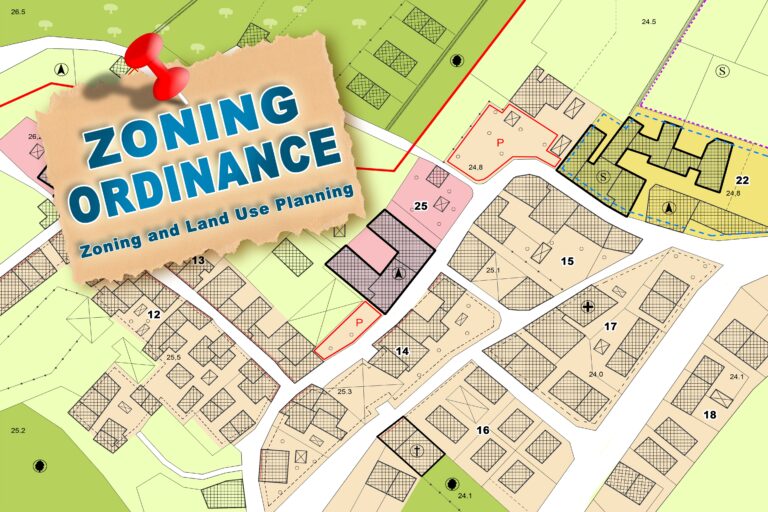Despite latest defense, zoning is just government coercion
By Kerry Jackson | November 22, 2024
Central planning never goes out of style on the political left. On occasion, though, it gets special attention. That’s the case with a new book written by, according to Governing magazine, “an architect and zoning scholar (who) shows how zoning can create vibrant economies and ‘delightful experiences’ for urban dwellers.”
Apparently the author came across an ancient secret that clearly lays out the keys to idyllic urban planning, a script that planners should have been following all along.
The author, Sara Bronin, through her book “Key to the City: How Zoning Shapes Our World,” wishes “to raise awareness of the essential role of zoning in making cities healthy, sustainable and enjoyable places to live,” says Governing, because apparently there is a “need for more people to understand how zoning reform can improve communities.”
Kirkus Reviews calls Bronin’s effort “an ardent and articulate argument for expansive regulation of urban development” and is generally approving in its assessment. But it’s economist Edward Glaeser’s review in The Wall Street Journal that delivers the most incisive observation.
“Hers is a thoughtful and interesting book, but some readers, like me, will find it far too optimistic about the upside of land-use regulations,” writes the Harvard economics professor.
Glaeser calls Bronin an “interventionist-reformer,” someone who “doesn’t like the current rules regulating the construction of buildings and would prefer to have different rules … that would create the kind of city she likes.” Kirkus Reviews somewhat agrees, noting the Bronin “also writes of instances when zoning has been problematic,” from “stifling affordable, multifamily housing” to “squandering water resources.”
To her credit, Bronin concedes that “zoning too often intrudes and imposes on deeply personal choices.” So she suggests “sensible reforms,” which can be “a tool that can be used creatively, imaginatively and carefully to build community in an ethical and intentional way.” It’s a phrase intended to sound innocuous and maybe even practical, but one man’s “sensible reforms” can be another’s intolerable trespass on his liberty.
The trouble with zoning is much like the problem with communism: The wrong people have always been in charge. But as Austrian economist Friedrich Hayek taught us, they always will be. The “wrong people” “get on top” because “the unscrupulous and uninhibited are likely to be more successful in a society tending towards totalitarianism.” There is a “ruthlessness” in them that is necessary to create and maintain systems of central power.
In other words – our words – the “wrong people” are always drawn to political power, while decent men tend to be repulsed by planning and managing the lives of others through government coercion.How could it ever be different with zoning, a tool that separates land use so that, in theory, a chemical plant won’t be located 15 feet from an apartment complex or a “gentleman’s club” next door to a daycare center, and regulates neighborhood density? That world can be inhabited only by those who believe their values and their goals are so important that they have the authority to impact the lives of others.
Though he is impressed by her presentation, Glaeser is not swayed by Bronin’s argument. Yes, he says “the more libertarian-leaning readers” might not agree with her, though they could “still learn from her.” He also acknowledges that “she is thoughtful and armed with an engaging trove of anecdotes about modern zoning reform.”
But it is Glaeser who for decades has been warning policymakers about the downside of zoning, and pointing out that it raises housing costs and chokes growth. In 2002, Glaeser published a paper in which he noted that “evidence suggests that zoning and other land use controls” play “the dominant role in making housing expensive.”

Zoning and an overflowing basket of regulations – think of the California Environmental Quality Act (CEQA) – simply skew the housing market, rendering the mechanisms of markets ineffective in keeping prices in check.
Nearly two decades later, Glaeser was arguing that “after 1970, the growth rate dropped in half” in California, but not because it was built out and there was nowhere to expand, but due to “the state imposed growth controls, environmental impact reviews and various land-use regulations.”
Rather than tweak and torture the existing labyrinth of rules, why not eliminate zoning altogether? And not just to advance liberty, which would be the primary reason to do so. It would also make housing more affordable and allow creative and cooperative minds to carve out interesting neighborhoods and appealing commercial districts, and even overlap the two.
In the end, though, the driving force has to be the liberation of cities from the impulses to coerce. By abolishing zoning, local governments would be stripped of the “vast and largely unaccountable power” they have accrued, which, says Pepperdine economist Gary Galles, has “provided an excuse for abuse.”
From their outset, zoning laws “created an opening for governments to take much of the value of citizens’ property through zoning regulations,” Galles writes in Law & Liberty, “without having to pay compensation that would otherwise be expected, as long as they could rationalize their actions as ‘solving’ some aspect of a broadly conceived general welfare.”
It would be a delightful experience, to borrow a phrase.
Kerry Jackson is the William Clement Fellow in California Reform at the Pacific Research Institute.
